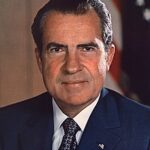The Huston Plan represented one of Nixon’s most controversial domestic decisions. In July 1970, Nixon approved this comprehensive surveillance program. The plan authorized illegal intelligence gathering against American citizens.
What the Huston Plan Authorized
Tom Charles Huston drafted the plan at Nixon’s request. The document authorized burglary of private homes and offices. It permitted mail interception and opening without warrants. The plan allowed unlimited wiretapping of domestic targets. Intelligence agencies could now spy on political opponents freely ⚠️.
Quick Reversal Under Pressure
FBI Director J. Edgar Hoover opposed the plan immediately. He feared public exposure would damage the bureau. Attorney General John Mitchell also expressed serious concerns. Nixon rescinded the Huston Plan after just five days 📊. However, some agencies continued similar activities unofficially.
Constitutional Violations
The plan violated Fourth Amendment protections against unreasonable searches. It ignored legal requirements for court-approved warrants. Many targeted activities constituted clear criminal acts. The decision showed Nixon’s willingness to break laws for political gain 🔍.
Impact:
The Huston Plan created lasting damage to presidential credibility and civil liberties. Though quickly rescinded, its approval revealed dangerous authoritarian tendencies.
Immediate Political Consequences
News of the plan emerged during Watergate investigations. Congressional committees demanded explanations from Nixon administration officials. The revelation strengthened impeachment proceedings against Nixon 🔥. Public trust in government surveillance programs plummeted significantly. Civil liberties organizations filed numerous lawsuits against federal agencies.
Long-term Constitutional Impact
The Huston Plan controversy led to major intelligence reforms. Congress passed the Foreign Intelligence Surveillance Act in 1978. New oversight committees monitored intelligence agency activities more closely 📉. Courts required warrants for most domestic surveillance operations. The plan became a cautionary tale about presidential overreach.
Historical Legacy
Historians view the Huston Plan as a watershed moment. It demonstrated how quickly democratic norms could erode. The decision contributed to Nixon’s eventual resignation in disgrace 🌍. Modern surveillance debates often reference this controversial program. Legal scholars cite it as an example of unconstitutional executive power.
